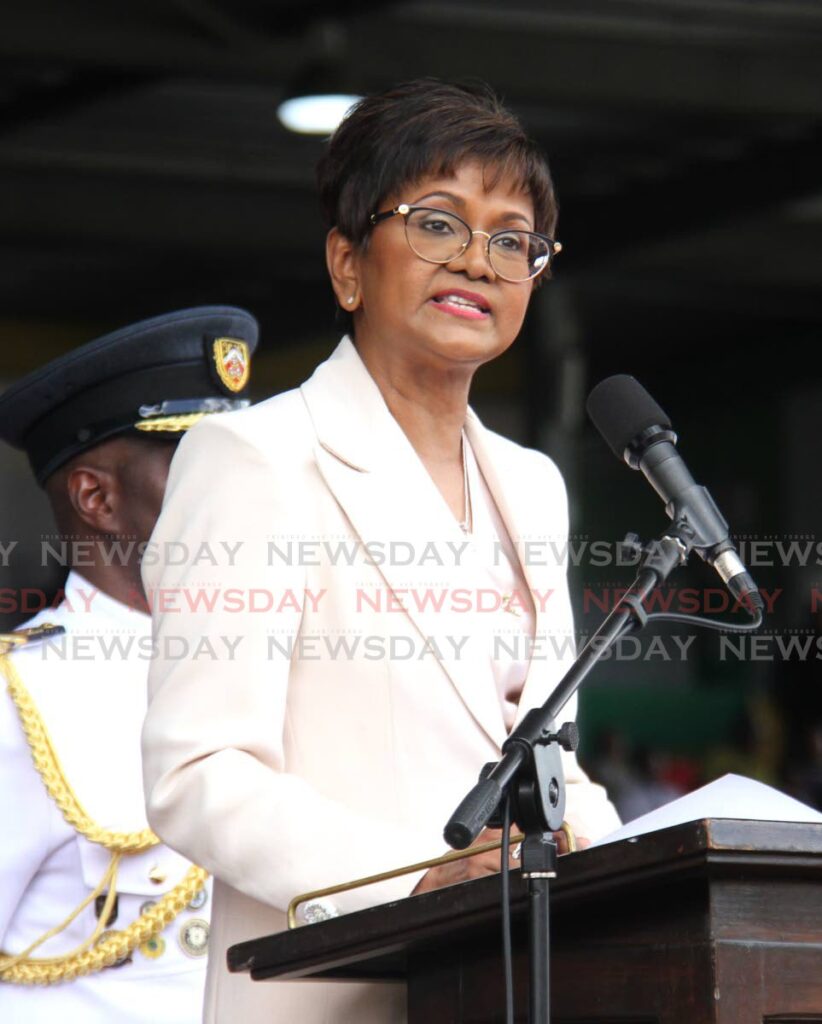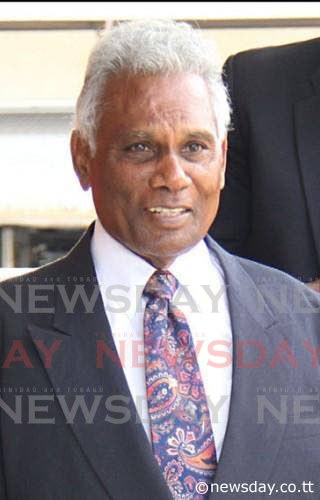Role, responsibilities of the President

Israel B Rajah-Khan, SC
The status of the President of the Republic of TT is misconceived and thus gravely misunderstood by the Executive (PM and Cabinet), the Judiciary, the entire Parliament and, I dare say, by the Office of the President.
Thus the role and responsibilities of the President are severely restricted and erroneously accepted by the entire country – especially the three benches of government: Executive, Legislative and Judiciary.
It is quite true that our President is not an executive president, but neither is she/he a mere formal ceremonial figurehead like the king of Great Britain.
The President of TT is endowed with great power, status and influence under our Constitution.
Section 39 of the Constitution states that the Parliament shall consist of the President, the Senate and the House of Representatives.
And of crucial importance, under Section 40 of the Constitution, the Prime Minister selects 16 people for the Senate, the Leader of the Opposition selects six and the President in his own discretion selects nine.
The President's selection of nine people, once appointed to the Senate, are commonly referred to as independent senators. They are independent of the government party whip and the opposition party whip.
It is instructive to note that both the government senators and opposition senators can be removed from the Senate on the respective advice of the Prime Minister or the Leader of the Opposition to the President. And the President can remove her independent Senators on her own discretion and is not accountable to anyone for their removal.
But the independent senators from time immemorial have been operating on their own and not under the guidance, advice and consultation of the President. They are independent of party politics in the Senate. but they are accountable to the President: not the Prime Minister, not the Leader of the Opposition but to the President.
It must be noted that in our liberal democratic state, which in reality is a republic, the government senators debate issues and proposed legislation on behalf of the Government (and vote accordingly on legislation on the instructions of the party whip); and so too the Opposition.
And this brings us to the President’s senators. They debate issues and proposed legislation on whose behalf? Is it the preposterous and ridiculous notion that they do their duty on behalf of themselves – as they have been misled to believe for the past few decades?
It is my considered legal opinion that the nine so-called independent senators are the President’s senators and they must debate issues and vote on proposed legislation in keeping with the President’s instructions. This is the rationale for Section 40 (2) (c) of the Constitution, which is the supreme law of our republic: “nine shall be appointed by the President in his discretion”…
And Section 43 (2) (e) of the Constitution grants her the power to remove any or all of her nine senators on her own discretion.
And because of the gross ignorance of all the prior presidents of our republic who were an integral part of the Parliament, the “so-called” independent nine senators enjoy the erroneous status of no accountability to anyone but themselves.
The seventh President of our country, Her Excellency Ms Christine Kangaloo, must make it quite clear to her nine senators that under our Constitution they are the conduit pipe for her sagacious judgement on the political issues which are debated and taken to Parliament and they enjoy a seat in Parliament purely on her discretion: thus they debate issues in Parliament on her behalf.

The second most important, if not the first, is the power of the President to select and appoint a Chief Justice of her choice.
Correct modus operandi of selection and appointing the CJ
Section 102 of the Constitution states: “The Chief Justice shall be appointed by the President after consultation with the Prime Minister and the Leader of the Opposition.”
Thus if the occasion arises for the appointment of a Chief Justice, the President will select in her own deliberate judgement someone whom she believes should be appointed to that exalted position under the doctrine of the separation of powers. It is her sole call on this issue.
And hence the Prime Minister by him/her self will be summoned by the President to engage in meaningful consultation on her proposed candidate for Chief Justice. And so too the Leader of the Opposition.
It is infra dig and out of place for either the Prime Minister or Leader of the Opposition to suggest a name or a person to the President for appointment unless the President invites either of them to do so. Be that as it may, the President is not obligated and/or compelled to appoint anyone as suggested by the Prime Minister or the Leader of the Opposition or even both of them, if perchance Prime Minister and Leader of the Opposition are agreed on a particular candidate.
Under the doctrine of the separation of powers it is the sole constitutional prerogative of the President in her own deliberate judgement (after consultation with the Prime Minister and Leader of the Opposition) to appoint the Chief Justice.
All that the President may be required to do during her consultation with the Prime Minister and Leader of the Opposition is to civilly and politely inform them of her rationale for selecting the person she wishes to appoint as Chief Justice; or she may even exercise her prerogative in not giving either of them any explanation and/or reasons for appointing the candidate of her choice.
President to be informed on matters of government
Section 75 of the Constitution vests the Cabinet with the general direction and control of the Government, and the Cabinet is collectively responsible to Parliament: and Parliament consists of the President, the Senate and the House of Representatives.
But Section 81 of the Constitution commands the Prime Minister to keep the President fully informed concerning the general conduct of the government and most of all, to furnish the President with such information as she may request with respect to any particular matter relating to the government.
Why is Faris Al-Rawi still a member of the Cabinet?
It is now well known to the entire country that former attorney general Faris Al-Rawi, on his own volition, without the advice and/or consent and agreement of the Director of Public Prosecutions and maybe the Prime Minister and his Cabinet, entered into an indemnity agreement with the main and sole witness, one Vincent Nelson, KC, in exchange for his evidence against former UNC attorney general Anand Ramlogan and former UNC senator Gerald Ramdeen on corruption charges.
The DPP discontinued these corruption charges on the grounds that Nelson indicated to the DPP's department he was not willing to give evidence unless the Government paid him over $100 million as per the “indemnity agreement.”
It is my considered legal opinion that former attorney general Faris Al-Rawi, by entering into this indemnity agreement, caused the DPP to discontinue the scandalous corruption charges against Ramlogan and Ramdeen. Yet he remains a member of the Keith Rowley Cabinet.
Thus the first issue on Her Excellency’s plate is to call upon the Prime Minister of this democratic country for an explanation as to why Al-Rawi remains a member of the Cabinet.
Her Excellency must make it clear to the Prime Minister that the powers he thinks she does not have, she has.
And most of all, that she is no "Yes, Mr Prime Minister" President.
Editor's note: Israel Rajah-Khan was nominated by the Opposition as President of TT, but did not get the majority support of the Electoral College.


Comments
"Role, responsibilities of the President"